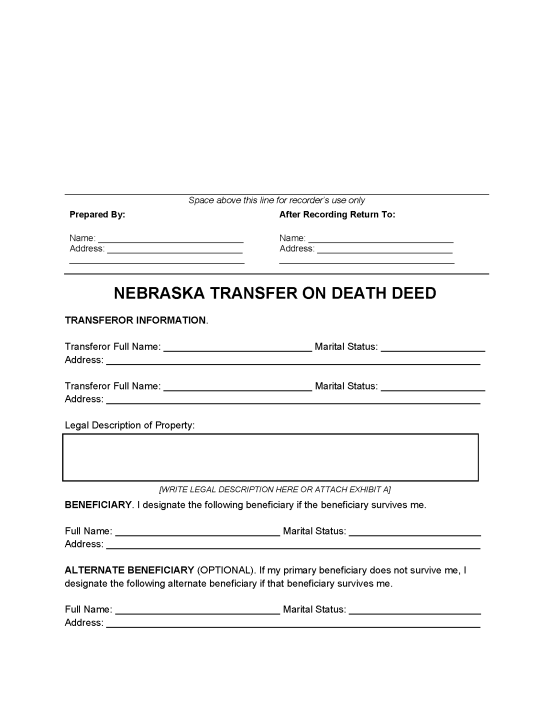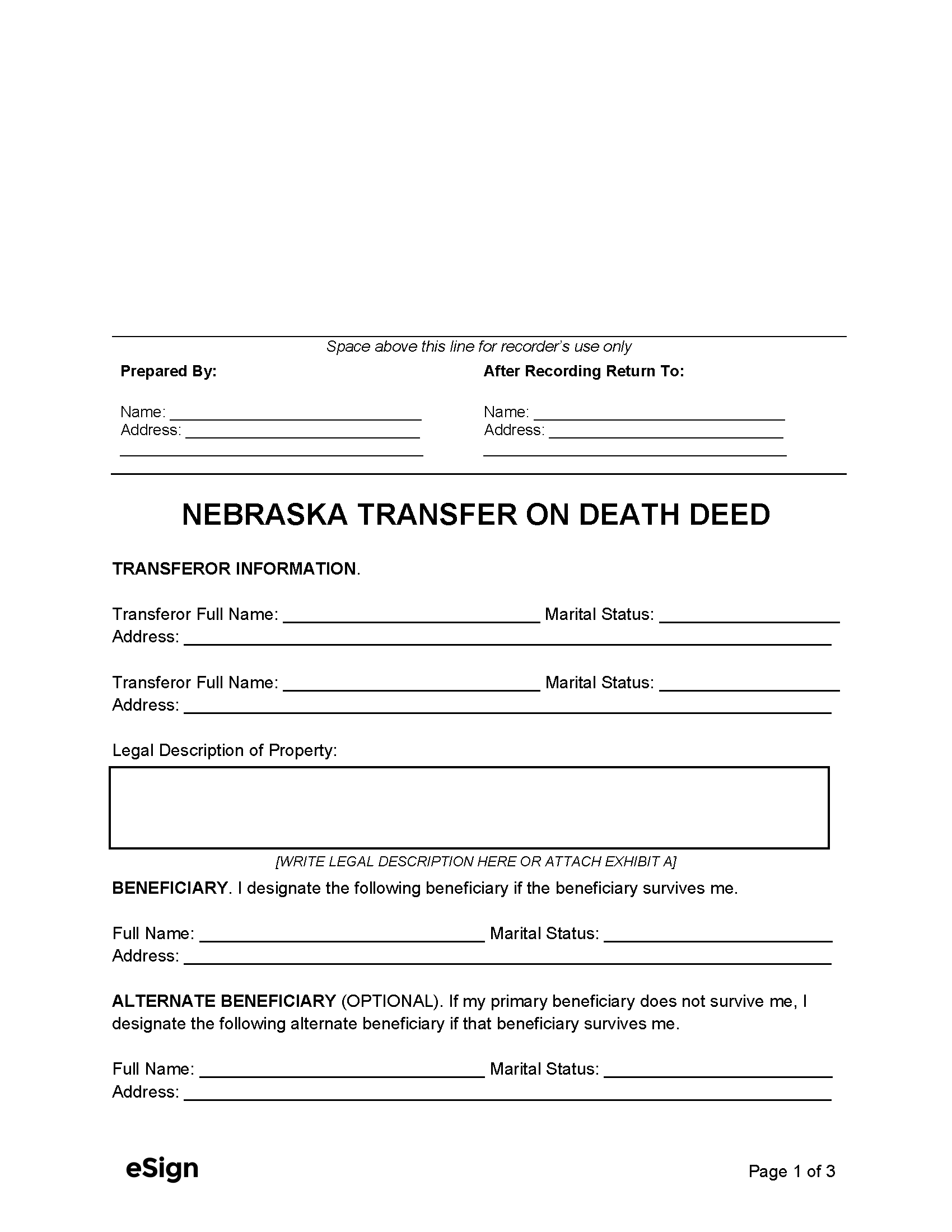Recording and Resources
Formatting
- Paper: 8.5″ x 11″ – 8.5″ x 14″
- Margins: 3″ top of first page, 1″ all other sides and pages
- Font: Min. 8pt, black or blue ink[1]
Signing and Recording
- Signing Requirements: Notary public and two disinterested witnesses[2]
- Where to Record: County Register of Deeds[3]
- Recording fees: $10 first page + $6 per additional page (as of this writing)[4]
Resources
Additional Forms
- Real Estate Transfer Statement (Form 521): After the transferor’s death, the beneficiary must provide this form along with the death certificate to the Register of Deeds to transfer the property into their name.

